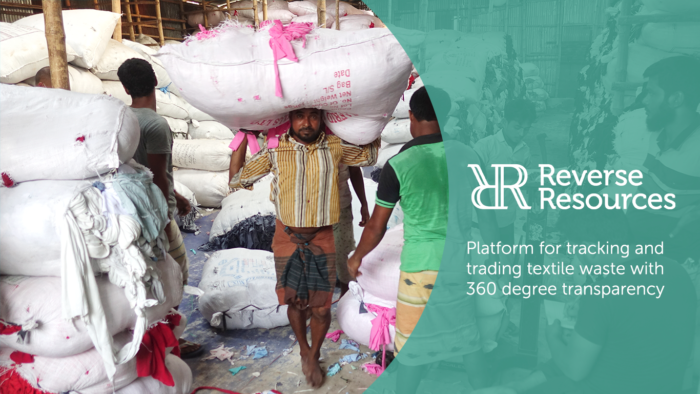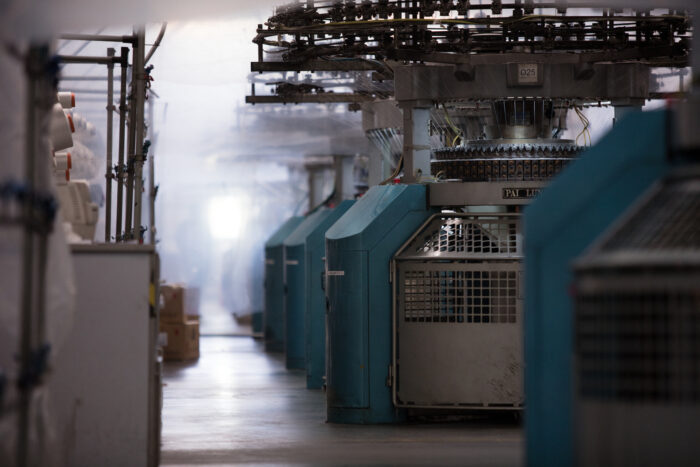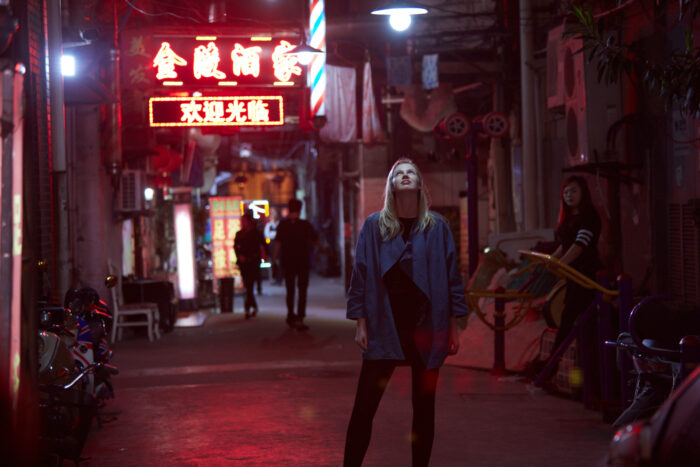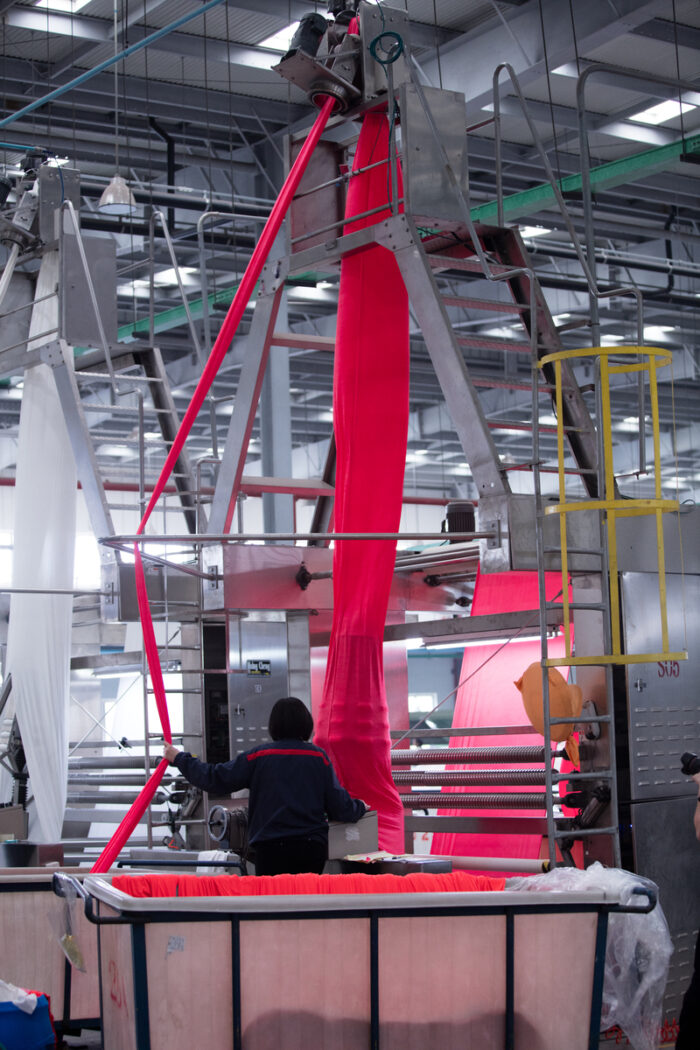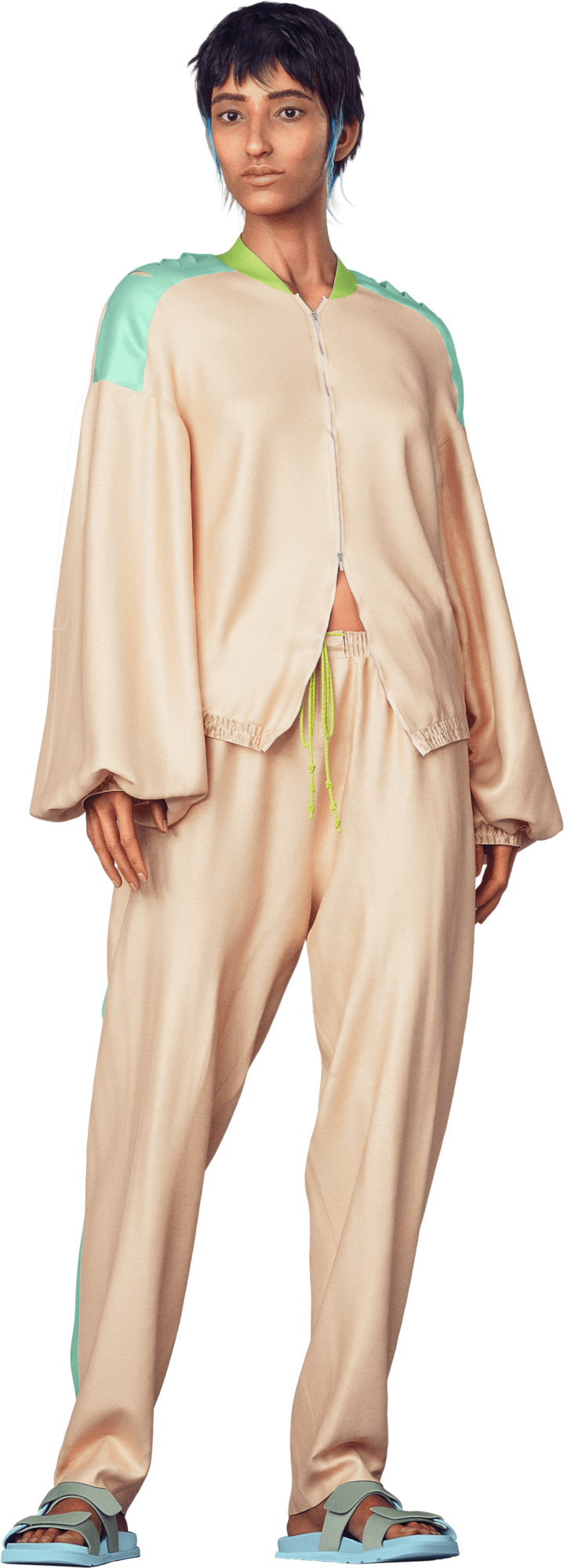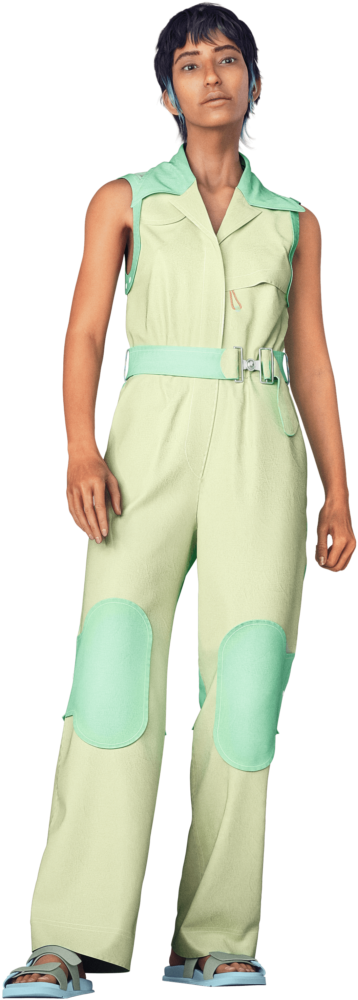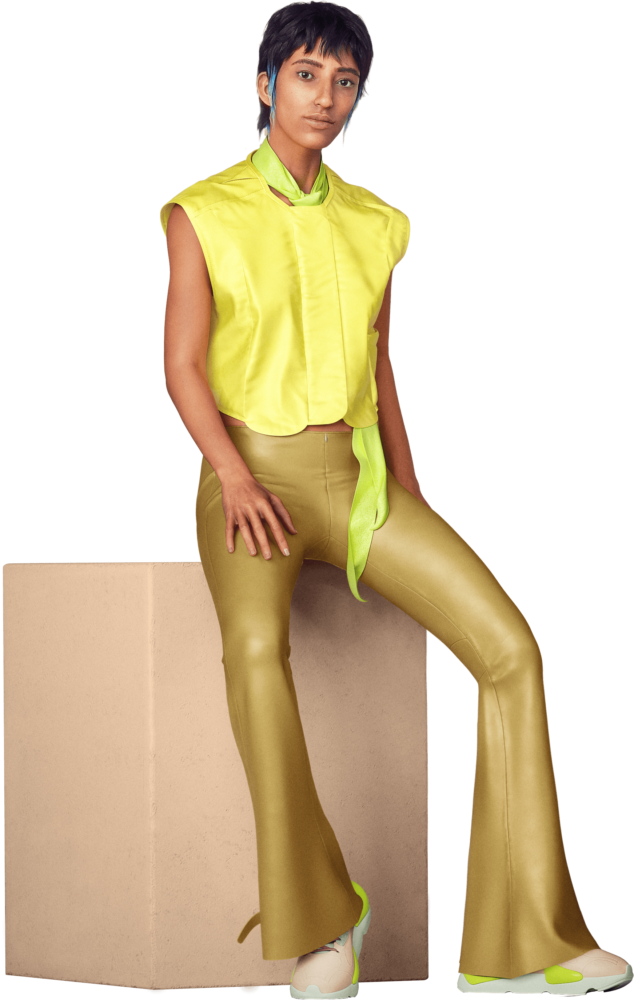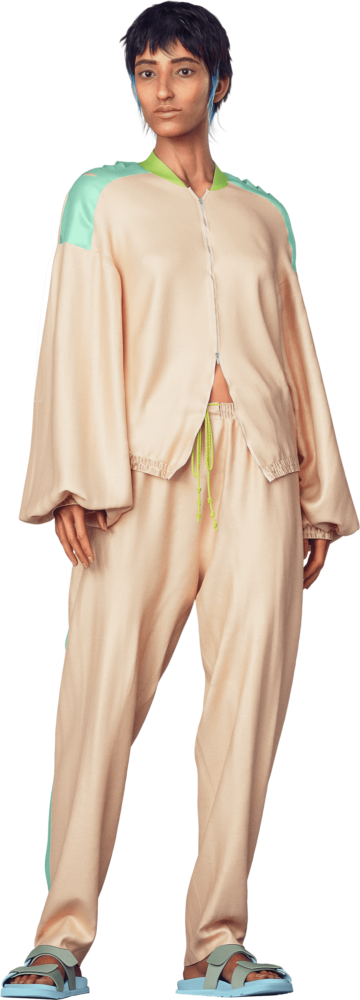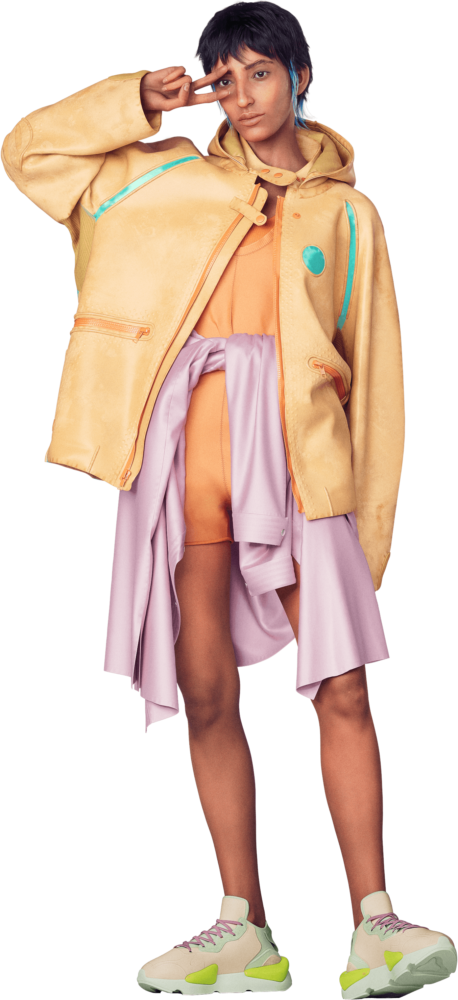Reverse Resources
Reverse Resources’ own estimated support needed to scale.
Seeing data and digitalization of waste flows as key to a circular economy, Reverse Resources has created a platform for mapping, steering and tracing textile leftovers to reduce the need for virgin materials.
Today, a large share of the fibers entering the fashion value chain end up as waste. This waste is often pushed out the factory door and handled by the informal sector, such as waste pickers, without any transparency. The waste, however, is in fact a resource, but due to inefficient supply chains it’s not treated as such. A middleman is needed, and that’s where Reverse Resources comes in.
Using the power of big data and transparency, Reverse Resources has created an ‘Uber for waste’ – connecting supply and demand, finding the best middleman to deliver the goods. The digital platform makes sure textile leftovers from fabric and garment production are mapped, traced and traded through a standardized and transparent process. In this way, Reverse Resources aims to help waste become the new raw material for the fashion industry, supporting the scale-up of a circular economy.
Impact Potential BY ACCENTURE
Enabling waste material
to be looped back into
the value chain
5,400 billion liters water enabled to
be saved with Reverse Resources’
solution in 2030
Comparable to the water usage in
production for 2 billion cotton t-shirts
Contributing to increased wages
and improved working conditions
in developing countries
The planet positive impact potential is estimated by Accenture with the purpose of demonstrating how Reverse Resources has the potential to create multi-dimensional value when scaling.
The high-level estimation is based on Reverse Resources’ potential to scale and its output in 2030 (~6 million metric tons of waste traced). Using Reverse Resources’ solution has the potential to save 5,400 billion liters of water in 2030, which is comparable to water usage in production for 2 billion cotton t-shirts.
The solution enables recycling waste material, creating a circular textile flow. In addition, the innovation has the potential to create a significant social impact. The waste workers in the informal sector in developing countries currently earn less than official minimum wages. With Reverse Resources’ approach of supply chain efficiency and increased value of secondary materials, margins of the waste management sector can be increased. This can lead to a more formalized sector, with higher wages and improved working conditions as a result.
More on Accenture’s Impact Potential.
These materials are (A) for information purposes only, (B) do not constitute an offer to subscribe for, buy or sell securities of any of the Innovations mentioned herein or any other securities, and (C) should not be relied upon to make any investment decisions.
Team
The team behind Reverse Resources consists of Ann Runnel (CEO and founder), Nin Castle (Co-founder and Network Lead), Dea Lasting (Co-founder and COO), Madis Peebo (CTO), Marieke Kokkelink (Sales director), Mari-Liis Link (UX designer), Maxime Bourland (Business Development & Research), Shamiul Hoque (Board member), Mumit Hasan (Lead of Operations, Bangladesh), Hemel Bhuiya (Project manager, Bangladesh), Mumit Hasan (Lead of Operations, Bangladesh), Hemel Bhuiya (Project manager, Bangladesh) and Harshitha Venati (Country Manager, India).
Together they combine vast experience from the fashion industry, software development and circular economy, with people spread across Europe (Estonia, Spain, Netherlands, Poland) and Asia (Bangladesh, India).
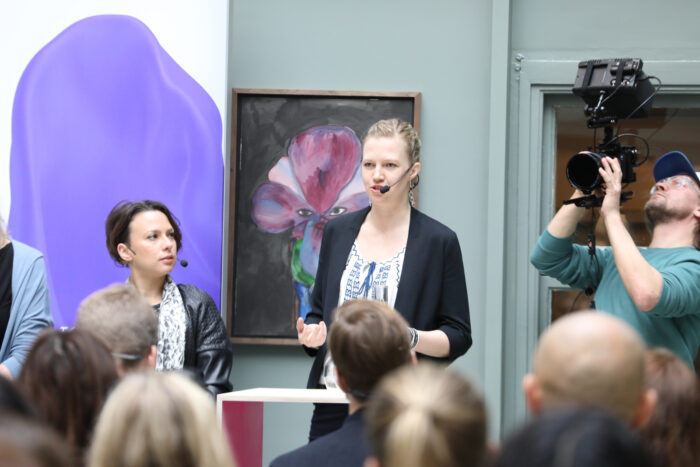
Awards
- European Business Awards for the Environment, Silver Medalist (2020)
- Google Cloud & SAP Circular Economy 2030 Finalist (2019)
- Estonian Startup Awards, Impact Visionary award (2019)
- Levi’s Collaboratory Fellow (2018)
- Postcode Lottery Green Challenge, runner up (2018)
- Winner, H&M Foundation Global Change Award (2015)
Contact
Ann Runnel, Founder and CEO
invest@reverseresources.net
reverseresources.net
LinkedIn | Instagram | Facebook
Download
See the start-up presentations to learn more.
